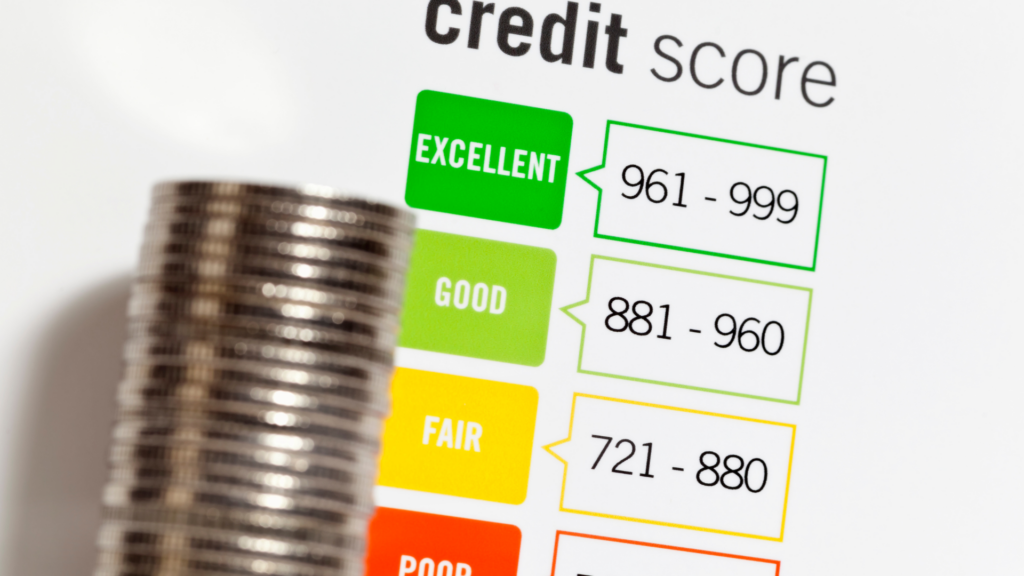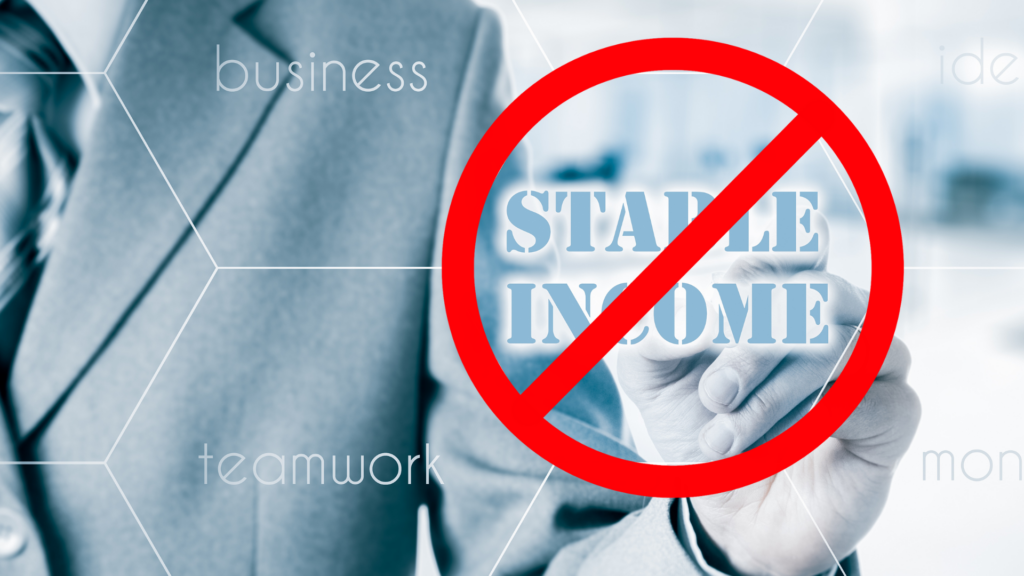In Short
Advice
Buying a property and signing that deed can be a thrilling milestone, but before you jump headfirst into the mortgage process, it's crucial to assess your readiness. After all, taking on a mortgage is a significant financial commitment that requires careful consideration. In this blog post, we'll explore the warning signs that indicate you might not be quite ready to take this leap. From financial stability and preparedness to job stability and understanding homeownership costs, we'll delve into key indicators that you should address before signing on that dotted line. So, before you get swept away by dreams of your perfect home, let's uncover the signs that might be signaling it's not the right time for you to embark on the journey of homeownership just yet.
Financial Instability
Before you embark on the journey of homeownership, it's crucial to evaluate your financial stability. In this section, we will explore two significant aspects: inadequate credit score and high debt-to-income ratio. A strong credit score is essential for mortgage approval, while a debt-to-income ratio demonstrates your ability to manage your financial obligations.
Inadequate Credit Score

Having an inadequate credit score can be a significant warning sign that you may not be ready to secure a mortgage. Lenders rely heavily on credit scores to assess your creditworthiness and determine the terms of your loan. A low credit score indicates a higher risk for lenders, making it more challenging to obtain mortgage approval or secure favorable interest rates. If your credit score is less than stellar, it's crucial to take proactive steps to improve it before pursuing homeownership. Building a solid credit history, paying bills on time, and reducing outstanding debt can help you strengthen your creditworthiness and increase your chances of obtaining a mortgage when the time is right.
High Debt-to-Income Ratio
A high debt-to-income ratio is a clear warning sign that you may not be ready to take on a mortgage. This ratio compares your monthly debt obligations to your monthly income and serves as a crucial factor in mortgage approval. If your debt-to-income ratio is too high, it indicates that a significant portion of your income is already committed to paying off debts, leaving less room for mortgage payments. Lenders prefer borrowers with a lower debt-to-income ratio, as it demonstrates financial stability and the ability to manage additional financial responsibilities. Before diving into homeownership, it's essential to evaluate and reduce your debt load, increase your income, or both, to achieve a healthier debt-to-income ratio and increase your chances of mortgage approval.
Lack of Financial Preparation
Being financially prepared is crucial before taking the leap into homeownership. In this section, we will explore two essential aspects: insufficient savings for a down payment and inadequate emergency fund. Having a substantial down payment not only improves your chances of securing a mortgage but also reduces your loan amount and monthly payments. Additionally, maintaining a robust emergency fund provides a safety net for unexpected expenses that come with homeownership.
Insufficient savings for a down payment

Having insufficient savings for a down payment is a clear warning sign that you may not be ready to pursue a mortgage. A down payment is a significant upfront cost when buying a property, and lenders typically require a percentage of the home's purchase price as a down payment. If you don't have enough savings to meet this requirement, it can hinder your ability to secure a mortgage or limit the loan options available to you. Furthermore, a larger down payment not only improves your chances of mortgage approval but also reduces your loan amount, monthly payments, and potentially eliminates the need for private mortgage insurance (PMI). Before considering homeownership, it's essential to focus on saving and building a substantial down payment to enhance your financial readiness for a mortgage.
Inadequate emergency fund
Having an inadequate emergency fund is a significant warning sign that you may not be ready to take on a mortgage. Homeownership comes with unforeseen expenses, such as unexpected repairs, maintenance costs, or job loss. An emergency fund acts as a financial safety net during challenging times, allowing you to cover these unforeseen expenses without compromising your ability to make mortgage payments. Without a robust emergency fund, you may find yourself financially strained or even at risk of defaulting on your mortgage if an unexpected financial setback occurs.
It is essential to prioritize building a sufficient emergency fund before pursuing homeownership, ensuring you have a solid financial foundation to handle any unexpected circumstances that may arise along your homeownership journey.
Job Instabilities
When it comes to applying for a mortgage, your job stability and income reliability play a crucial role. In this section, we will explore two significant aspects of job instabilities: frequent job changes and unstable or unreliable income. Lenders carefully scrutinize your employment history and income stability to assess your ability to make consistent mortgage payments. Frequent job changes can raise concerns about your financial stability, while an unstable or unreliable income source can hinder your ability to meet long-term financial obligations.
Frequent Job Changes

Frequent job changes can be a significant warning sign that you may not be ready to pursue a mortgage. Lenders prefer borrowers with stable employment histories, as it demonstrates a reliable and consistent income source necessary for making mortgage payments. Frequent job changes can raise concerns about your ability to maintain steady employment and meet long-term financial obligations. Lenders typically evaluate employment history, looking for stability and a consistent income stream.
If you have a pattern of switching jobs frequently or have recently changed jobs, it may be wise to wait until you have established a more stable work history before considering homeownership. Building a solid employment record will not only increase your chances of mortgage approval but also provide you with the financial stability needed to manage the responsibilities of homeownership.
Unstable or Unreliable Income

Having an unstable or unreliable income is a significant warning sign that you may not be ready to pursue a mortgage. Lenders prefer borrowers with a consistent and reliable income source to ensure they can meet their financial obligations, including mortgage payments, over the long term. If your income is erratic, irregular, or unpredictable, it can raise concerns about your ability to make consistent mortgage payments.
Whether you are self-employed, rely on commissions or seasonal work, or have an income source that fluctuates, it's crucial to demonstrate a stable income pattern before considering homeownership. Building a track record of steady income or exploring alternative options, such as securing a stable job or diversifying income streams, can improve your financial readiness and increase your chances of mortgage approval.
Lack of Understanding about Homeownership Expenses
One common warning sign of being unprepared for a mortgage is underestimating homeownership expenses. While the mortgage payment is a significant financial commitment, it's crucial to recognize that there are additional costs beyond this monthly obligation. These expenses may include property taxes, homeowners insurance, private mortgage insurance (PMI), homeowners association (HOA) fees, and utility bills.
Moreover, homeownership may involve costs such as renovations, furnishings, landscaping, and home improvements. Underestimating these expenses can lead to financial strain and difficulty meeting all the financial responsibilities associated with owning a property. Therefore, it is essential to have a comprehensive understanding of the complete range of homeownership expenses and factor them into your budgeting and financial planning.
Another warning sign that someone may not be ready for a mortgage is neglecting property maintenance and repair costs. As a homeowner, you become responsible for the upkeep and maintenance of your property. Regular maintenance, such as roof repairs, HVAC servicing, plumbing fixes, and general upkeep, is crucial to preserving the value of your investment and ensuring the longevity of your home. Neglecting these responsibilities can lead to more significant issues down the line, potentially resulting in costly repairs or a decrease in your property's value.
By overlooking the financial implications of property maintenance and repairs, you risk not only immediate financial strain but also long-term consequences that could impact your financial stability and the overall condition of your property. It's vital to factor in these costs, budget accordingly, and be prepared for unexpected repairs or maintenance needs that may arise as a homeowner.
Closing Comments
In conclusion, before you embark on the exciting journey of homeownership, it's crucial to recognize the warning signs that indicate you may not be ready for a mortgage. Insufficient financial stability, lack of financial preparation, job instabilities, and a limited understanding of homeownership costs can all be red flags that should not be ignored. However, by addressing these warning signs head-on and taking proactive steps to improve your financial situation, you can increase your chances of mortgage success and ensure a more enjoyable homeownership experience.
Seek professional financial advice, diligently save for a down payment, improve your credit score, and understand the full range of homeownership costs. Remember, being prepared financially and emotionally is the key to signing that deed with confidence and embracing the joys and responsibilities of owning your own home. Take the time to evaluate your readiness, make the necessary adjustments, and when the time is right, you'll be well on your way to fulfilling your dreams of homeownership.
Looking for an ideal property to invest in? Let PropertyScout help you today to make your property investment goals a reality!
FAQs
Lorem ipsum dolor sit amet, consectetur adipiscing elit. Suspendisse varius enim in eros elementum tristique.
Explore More Topics
Free real estate resources and tips on how to capitalise



